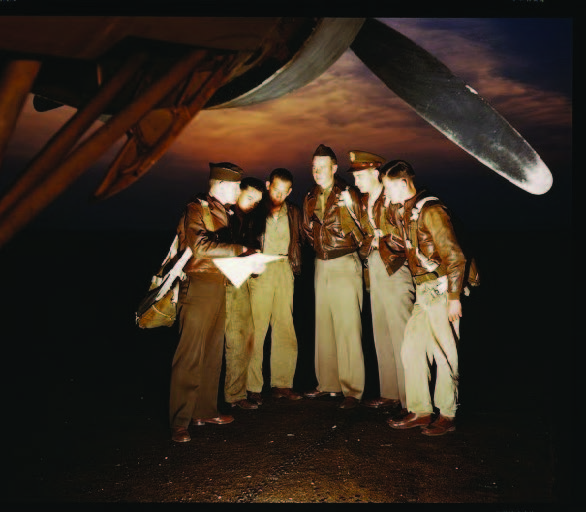CONSCIENCE
A CIVIC EXAMINATION OF CONSCIENCE ON THE EVE OF WAR
World War II (1939–1945) forever changed the United States. The Japanese attack on Pearl Harbor (Dec. 7, 1941) catapulted the country out of its isolationist foreign policy; the Great Depression (1929–1939) came to an end; and America emerged from the conflict as a nuclear superpower.
The war also irrevocably changed the social standing of Catholics in Virginia. As they did during the Civil War (1861–1865) and World War I (1914–1918), Catholics in the commonwealth supported the war effort, which included military service. In this way, they demonstrated their patriotism, which had the effect of dispelling anti-Catholic bigotry in Virginia.
Furthermore, the Catholic Church experienced rapid growth in northern Virginia and Tidewater as a consequence of the expansion of the federal government during and after the war and because of the post-war population boom. Catholics from other states came to these areas of the commonwealth to work for the government, including the military and related industries. As these new arrivals joined the ranks of the middle class, the Catholic Church came to be more widely accepted in Virginia society.
Five months before Pearl Harbor, an editorial in The Catholic Virginian (July 1941) warned about the external threat posed by Nazi Germany. The piece, written on the occasion of the Fourth of July, also warned against the internal threats to American democracy posed by a simultaneously unholy and un-American way of life.
In this way, the editorial made the point that to be a good Catholic was to be a patriotic American:
We look out on a world abroad that seems to threaten chaos come again, a world whose condition seems to menace all things that, politically and social speaking, make American life worth living….
But just as Nazi influence here [in the United States] has been waning, Nazi power abroad has been growing by leaps and bounds. …There is room for debate as to the precise way in which that danger can best be met. There is no doubt that preparations should be promptly made to meet it. …
Today, we Americans might well remind ourselves that the only enemies that can destroy the Republic dwell among us, or rather in us—for they are the bad passions of our own hearts. Selfishness, greed, pride, sensuality, cowardice, ingratitude, and ungodliness in general—these are the foes that can ruin our country, if we give them dominion over our thoughts and acts.
Democracy in these days needs mechanized armies to defend it, but all the mechanized armies in the world cannot guarantee democracy. That must live either in the hearts of the people, or not at all. Because democracy is not only an outward form but an inward spirit: the spirit of orderly freedom under just law, of constant respect for the rights of others, of personal self-sacrifice for the common good. …
So in this month which marks the one hundred and sixty-fifth anniversary of the Declaration of Independence, no American could indulge in a better or more needed patriotic exercise than that of examining the genuineness and value of his own Americanism. For if this country be in peril… it will be saved by common sense and common honesty, allied with the readiness of its citizens to put service above self-seeking and patriotism ahead of profiteering.
Most of us are at heart good Americans. If enough of us start acting as such we may be sure that, in Lincoln’s words, “this nation, under God, shall have a new birth of freedom; and that government of the people, by the people, for the people, shall not perish from the earth.”

